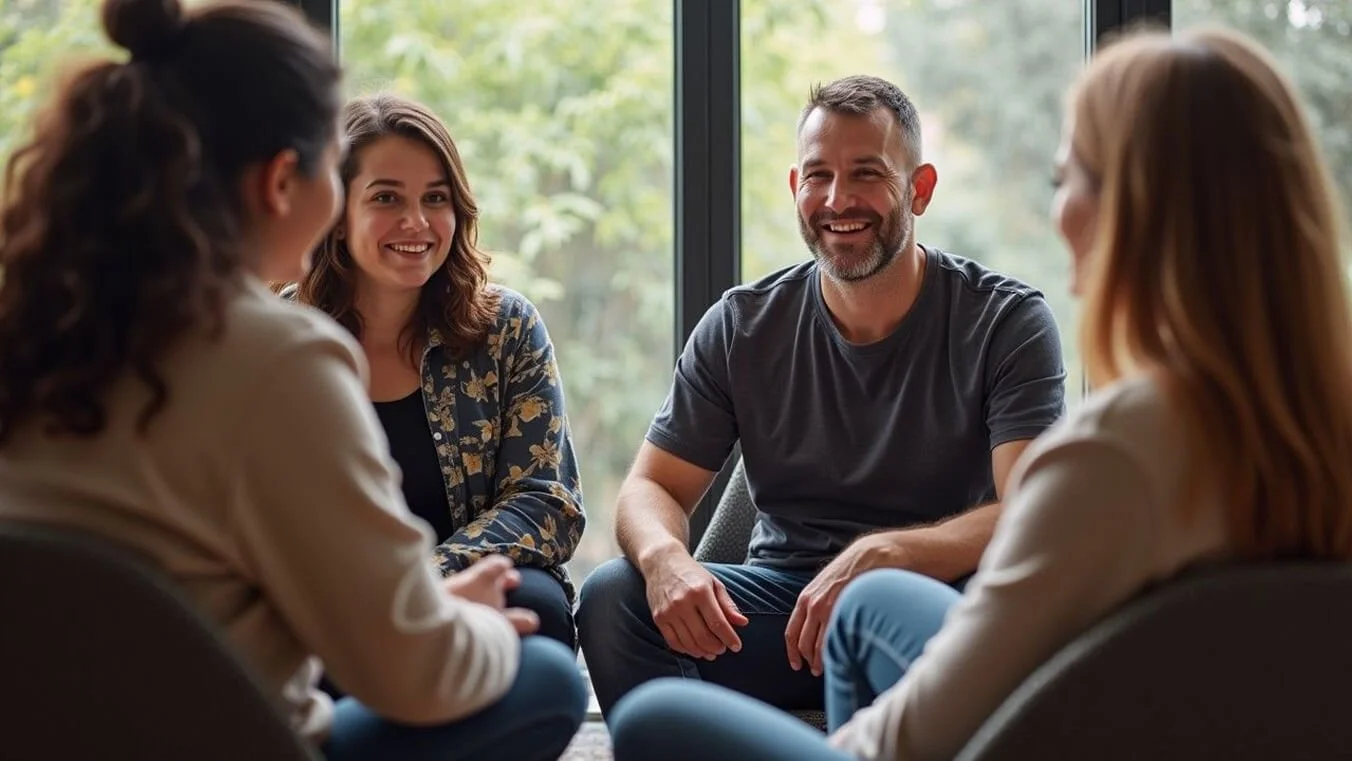Supporting Younger Veterans Program: Essential Guide to DVA Services, Benefits, and Eligibility
Transitioning from military to civilian life presents unique challenges for younger veterans who have served our country. The supporting younger veterans program addresses these challenges by providing targeted services designed specifically for the needs of recently discharged ADF members. Many younger veterans struggle to navigate the complex DVA system when seeking appropriate healthcare, financial support, and rehabilitation services. Understanding what's available through these programs—and how to qualify for them properly—can make all the difference in securing a successful transition to civilian life.
Start Your DVA Claim Today
We’ve helped 7,000+ veterans claim $800M+ in Permanent Impairment payouts. With zero upfront fees, you only pay for successful claims.
What Is the Supporting Younger Veterans Program?
The Supporting Younger Veterans (SYV) Program is a DVA initiative designed to assist veterans who have recently transitioned from the Australian Defence Force (ADF). Unlike broader veteran support schemes, the SYV Program specifically focuses on the unique needs of younger veterans who may be dealing with different challenges compared to older veterans.
Key Benefits and Services Available
Healthcare Support and Services
Younger veterans can access healthcare services and other entitlements through a DVA White Card, depending on their eligibility. For those with service-related conditions, the White Card covers treatments for these specific conditions regardless of when they served.
All veterans, including younger veterans, have access to mental health support through Non-Liability Health Care (NLHC), which provides treatment for mental health conditions without needing to prove the condition is service-related. This critical benefit means younger veterans can access mental health services immediately without waiting for a claim decision.
Additionally, veterans may access:
General practitioner services
Specialist consultations
Allied health services (physiotherapy, occupational therapy)
Rehabilitation programs
Prescription medications through the Repatriation Pharmaceutical Benefits Scheme
Financial Assistance and Benefits
Younger veterans facing financial challenges may be eligible for various forms of assistance, including:
DVA incapacity payments for those unable to work due to service-related conditions
Eligible Young Persons Payments for veterans with dependent children
Education and training assistance through the Veterans' Vocational Rehabilitation Scheme (VVRS)
Financial counselling services
DVA rent assistance for eligible veterans
These financial supports are designed to stabilise during transition periods and help younger veterans establish themselves in civilian life.
Education and Employment Opportunities
Transitioning to civilian employment can be one of the biggest challenges for younger veterans. The SYV Program helps address this through:
Career counselling services
Resume writing and job search assistance
Training and upskilling opportunities
Recognition of prior learning programs
Work placement and trial programs
Entrepreneurship support for veterans looking to start their own businesses
The Prime Minister's Veterans' Employment Program also works alongside these services to promote the value of employing veterans in the civilian workforce.
Mental Health and Wellbeing Resources
Mental health is a priority area for the support of younger veterans. Available resources include:
Free mental health treatment through NLHC
Counselling services through Open Arms - Veterans & Families Counselling
Peer support programs
Veterans mentorship programs connect younger veterans with experienced mentors
Wellbeing programs focused on physical activity and social connection
Family support services
These mental health resources are available without the need to lodge a claim or prove service connection, making them immediately accessible when needed.
Eligibility Requirements for Younger Veterans
The term "younger veteran" generally refers to those who have served in the ADF after 1999, including deployments to East Timor, Afghanistan, Iraq and other operations. However, the SYV Program doesn't strictly define younger veterans by age but rather focuses on veterans who have transitioned from service more recently and face contemporary challenges.
To access these programs, you generally need to meet these criteria:
Have served in the Australian Defence Force (full-time or as a reservist with qualifying service)
Have been discharged from service (though some programs are available to those still serving, but transitioning out)
For specific benefits, you may need to have a qualifying service or service-related conditions
For some programs, you must have transitioned within a specific timeframe (typically within the last 5-10 years)
Different parts of the SYV Program have their own specific eligibility requirements. For financial assistance or healthcare under DVA programs, you'll generally need to make a DVA claim to establish eligibility for ongoing benefits.
How to Access the Supporting Younger Veterans Program
Accessing the SYV Program involves several steps:
Identify which services you need: Determine whether you're seeking healthcare, financial assistance, employment support, or other services.
Check your eligibility: Review the eligibility criteria for the specific programs you're interested in through the DVA website or by speaking with a DVA claims specialist.
Make appropriate applications: For healthcare and financial benefits, you'll generally need to submit a claim through DVA.
Gather supporting documentation: You'll need to provide evidence of your service, discharge papers, medical records if claiming for health conditions, and other relevant documentation.
Seek assistance with the process: Consider working with an advocate or DVA claims specialist to ensure your application is properly prepared.
The application process can vary depending on which part of the SYV Program you're accessing. While some mental health services are available immediately without application requirements, most financial benefits and healthcare coverage will require a formal claim process.
Common Challenges and How to Overcome Them
Navigation of Complex Systems
Many younger veterans find the DVA system complex and difficult to navigate. The different acts of legislation, various support programs, and multiple pathways can be overwhelming.
Solution: Seek assistance from a DVA claims specialist who understands the system. They specialise in helping veterans understand which benefits they're entitled to and how to access them effectively.
Documentation and Evidence Gathering
Establishing eligibility often requires substantial documentation, including service records, medical evidence, and other supporting materials.
Solution: Start gathering documentation early. Request copies of your medical and service records as soon as possible. Keep a detailed chronology of events related to any conditions you're claiming and seek professional help with collecting and organising your evidence.
Appeals Process for Denied Claims
Unfortunately, initial claims are sometimes denied, which can be disheartening for younger veterans seeking support.
Solution: Don't give up if your claim is initially rejected. The appeals process allows for reconsideration of decisions. Working with a specialist who understands what evidence is needed and how to present your case effectively can significantly improve your chances of a successful appeal.
How Veterans First Consulting Can Help
At Veterans First Consulting, we specialise in helping younger veterans navigate the DVA system and access the benefits they're entitled to. Our services include:
Claim preparation and lodgement: We help you prepare comprehensive claims that include all necessary documentation and evidence to support your case.
Eligibility assessment: We can assess your service history and current situation to identify which programs and benefits you may be eligible for under the SYV Program.
Appeals and reviews: If your claim has been denied, we can help you understand why and prepare a strong case for review or appeal.
Ongoing support: We don't just help with the initial claim—we provide ongoing support throughout the entire claims process and beyond.
Education about entitlements: Many younger veterans aren't fully aware of what they can claim from DVA. We'll help you understand the full range of benefits available.
Our team includes veterans who have personal experience with the transition process and understand the challenges you're facing. We work for you, not DVA, and are committed to ensuring you receive every benefit you're entitled to.
FAQs: Supporting Younger Veterans
-
If you're a younger veteran with qualifying service, you may be eligible for education and training support through the Veterans' Vocational Rehabilitation Scheme. This can help cover costs associated with education and training programs that enhance your employment prospects.
-
Yes, many support services extend to the families of veterans. Programs like Open Arms counselling are available to immediate family members. Additionally, dependents may be eligible for education assistance and other support services to help families adjust to civilian life together.
-
All veterans, regardless of when they served, can access free mental health treatment for conditions including PTSD, anxiety, depression, and alcohol and substance use disorders through the Non-Liability Health Care provisions. You can also access counselling through Open Arms without a referral.
Maximising Your Benefits as a Younger Veteran
Transitioning from military to civilian life is challenging, but the Supporting Younger Veterans Program provides targeted services to smooth this journey. At Veterans First Consulting, we're committed to helping you navigate this complex system, understand all available benefits, and access every entitlement you deserve. We understand the unique challenges younger veterans face and work tirelessly to ensure you receive proper support. If you're looking to understand your entitlements or need assistance with a DVA claim, contact us today for expert guidance.
Simplify Your DVA Claim: Get the Compensation You Deserve
Veterans First Consulting has secured $800M+ in DVA claims for 7,000+ veterans. Let us handle your new claim or reassessment. With zero upfront fees, you only pay for successful claims.




